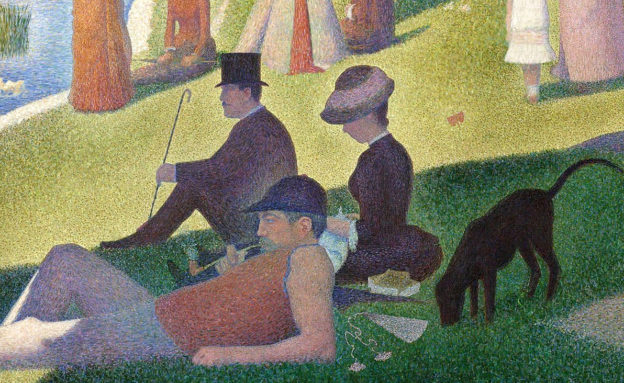I need a holiday. If you have talked to me at any length over the last six months, you will know why! There is only so much uninterrupted work you can manage on top of family and other responsibilities before the body burns out and breaks down. If there is one thing I have been very thankful for, it has been a day of rest and worship on Sunday.
We live in a world where taking holidays is sometimes viewed with suspicion (slacker!), and as for taking one day a week to rest and worship God? Not surprisingly, bombarded with the world’s desire for constant go-go-go, we are tempted to view a faithful interpretation of the Sabbath rest as a burden.
But the Sabbath was made for us, as our passage reminds us. Work, even work for God, needs to be put aside. The Sabbath exists so we can enjoy the privileges of which the tabernacle teaches us: worshiping God and enjoying his presence. While we await Jesus’ return, we still work and rest in the pattern of Creation, but one day soon we will enjoy eternal rest.
This is why after instructing Moses to appoint Oholiab and Bezalel to the task of the tabernacle’s construction, God again reminds Israel of the importance of the Sabbath (vv.12-13). This is now the fourth time the Sabbath has come up (chs. 16, 20, 23).
Israel, and in particular those tasked with building God’s house and furnishings, might have viewed their holy calling with the passion and vigour which overrides all other considerations, even that of the Sabbath. After all, this was holy work right, building God’s house?
Placing this third reminder after these instructions reminds them that no, it is not more important than the Sabbath. Even holy work should cease for rest and worship. It is “a sign between me and you throughout your generations, that you may know that I, the LORD, sanctify you” (v.13). Not Works. Even good works. But God who makes us holy.
To ensure Israel understood that God was deadly serious about the Sabbath, he instituted a civil law for Israel. “You shall keep the Sabbath, because it is holy for you. Everyone who profanes it shall be put to death. Whoever does any work on it, that soul shall be cut off from among his people” (v.14).
God viewed working on the Sabbath as replacing him with work as the means of salvation. So those of Israel who worked on the Sabbath were (literally) put to death. They had six other days to work (v.15), so working on the Sabbath was effectively saying they were more interested in the labours than knowing God. That was a virus which could not infect God’s people, so it was eliminated.
Keeping the Sabbath reminded God’s people they were made and redeemed to be his, not their own. They were to observe it “as a covenant forever” (v.16) because it “is a sign forever between me and the people of Israel that in six days the LORD made heaven and earth, and on the seventh day he rested and was refreshed” (v.17).
Like God did at Creation, the people should set aside their labours after six days and rest, taking the time to enjoy God’s presence with them in the tabernacle, coming to know God and become more like him.
These commands, like all the instructions that came before, were not the made up ramblings of a man but were “written with the finger of God” on stone tablets, ensuring that God’s people had a copy of the covenant relationship with God to which they were a party (v.18).
Rather than a burden, the Sabbath is a blessing. It is a time, every week, where we can specially put aside the worries of the day and learn more of God and his works for us. Like Martha, we can get so caught up in the chores of each day that we fail to stop like Mary and listen to Jesus’ teaching, and choose “the good portion, which will not be taken away” (Luke 10:42).
The Sabbath not only allows us time to focus ourselves on God, but also to rest. In a 24/7 world, where events are always happening, shops are always open, and people are always working, we can set aside the concerns of today and take a deep breath. We can slow down the pace of life, and put work in perspective.
We can worship God, fellowship, and do acts of mercy. We can relax; which does not just mean sitting quietly in a corner reading a dense Puritan tome, but things which we enjoy.
This taking time to worship and rest is also a witness to our society. As they run to and fro trying to fit enough “busy” in their lives, we slow down to recharge. We start each week focused on God and looking forward to the Eternal Rest. Perhaps in our example, they too might see their need to find their rest in Christ.


